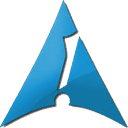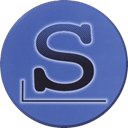Discovering the Best Artix Linux Alternatives for Your System
Artix Linux, a unique operating system stemming from the Arch-OpenRC and Manjaro-OpenRC projects, offers a lightweight, rolling-release experience powered by the OpenRC init system. With editions ranging from a minimal Base system to full i3 and LXQt desktop environments, Artix caters to users seeking a streamlined and customizable Linux experience. However, for various reasons, including specific feature needs, different init systems, or simply a desire to explore, many users look for a reliable Artix Linux alternative. This article will guide you through some of the top contenders.
Top Artix Linux Alternatives
Whether you're looking for a different init system, a more curated experience, or a completely different underlying architecture, these alternatives offer compelling reasons to consider them over Artix Linux.

Arch Linux
Arch Linux is the upstream source for Artix, making it a natural Artix Linux alternative for those who appreciate the rolling-release model and the highly customizable, minimalistic approach. It's an independently developed, i686- and x86_64-optimised GNU/Linux distribution targeted at competent Linux users. Being free and open-source, Arch offers extensive features like the Arch User Repository (AUR), community-based support, and a comprehensive wiki, providing a similar but more hands-on experience without the OpenRC init system by default.

Manjaro Linux
Manjaro Linux is a user-friendly distribution based on Arch Linux, offering a more out-of-the-box experience compared to Artix. As a free, open-source Linux distribution, it maintains the rolling-release model and benefits from the Arch User Repository, while providing greater stability and excellent hardware support, including pre-configured Nvidia drivers. This makes Manjaro a fantastic Artix Linux alternative for users who want the power of Arch without the extensive setup.

FreeBSD
For those looking beyond Linux, FreeBSD presents a powerful and advanced Unix-like operating system. As a free and open-source BSD system, it offers exceptional stability and performance, particularly in server environments. While not a direct Linux fork, its geeky appeal, ARM support, and robust package control system make it a viable Artix Linux alternative for users interested in exploring different kernel architectures and system philosophies.

Gentoo
Gentoo Linux is a highly customizable, rolling-release Linux and FreeBSD distribution known for its source-based package management. It's completely free and open-source, geared towards developers and network professionals who desire ultimate control over their system. Similar to Artix in its focus on minimalism and user control, Gentoo offers an even deeper level of customization, making it a compelling Artix Linux alternative for advanced users who prefer compiling software from source.

MX Linux
MX Linux is a midweight operating system based on Debian, offering an elegant and efficient desktop experience. As a free and open-source Linux distribution, it focuses on stability, performance, and a user-friendly approach. While not a rolling-release like Artix, its lightweight nature and extensive toolset make it an excellent Artix Linux alternative for users seeking a stable and customizable system with a more traditional release cycle.

ArchBang
ArchBang is a simple GNU/Linux rolling-release distribution that provides a lightweight Arch Linux system combined with the Openbox window manager out-of-the-box. As a free and open-source Linux distribution, it's designed to be minimalistic and fast, much like Artix. For users who appreciate Artix's lightweight Arch base but desire a pre-configured Openbox experience, ArchBang serves as a direct and effective Artix Linux alternative.

Slackware
Slackware Linux is one of the oldest and most respected Linux distributions, known for its simplicity and stability. As a free and open-source Linux operating system, it prioritizes ease of use and stability while providing a minimalistic environment. For users seeking a different approach to system management and a highly stable, non-systemd Linux experience, Slackware is a venerable and reliable Artix Linux alternative.

TrueOS
TrueOS, formerly known as PC-BSD, is a user-friendly desktop operating system based on FreeBSD. Known for its stability and security in server environments, TrueOS brings these benefits to the desktop with a focus on ease of use. As a free and open-source BSD system with a rolling-release model, TrueOS offers a robust and Unix-like Artix Linux alternative for those interested in a non-Linux desktop operating system with a strong emphasis on reliability.

Alpine Linux
Alpine Linux is a security-oriented, lightweight Linux distribution based on musl libc and busybox. As a free and open-source Linux system, it excels in minimal resource usage and strong security features, making it ideal for containers and embedded systems. For users who prioritize extreme lightness and security above all else, Alpine Linux is an excellent and distinct Artix Linux alternative.

EndeavourOS
EndeavourOS offers an easy-to-use installer for Arch Linux, coupled with a friendly and supportive community. As a free and open-source Linux distribution, it aims to provide a near-vanilla Arch experience with added convenience. For those who appreciate Artix's Arch foundation but prefer a simpler installation process and strong community backing for their rolling-release system, EndeavourOS is a highly recommended Artix Linux alternative.
Ultimately, the best Artix Linux alternative depends on your individual preferences, technical comfort, and specific system requirements. Whether you stick with an Arch-based distribution or venture into the BSD world, there's a robust and reliable operating system waiting to be discovered. Explore these options and find the perfect fit for your computing needs!